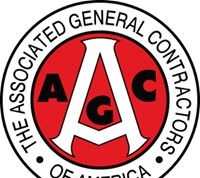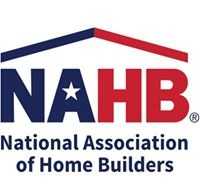Senators Moran, Tester & Tillis Introduce Bill to Expand VA Home Loans for National Guard
MANHATTAN – RealEstateRama – U.S. Senators Jerry Moran (R-Kan.), Thom Tillis (R-NC) and Jon Tester (D-MT) introduced bicameral legislation to expand VA home loan benefits to National Guard & Reserve members by crediting service under federal Title 32 orders of the United States Code (U.S.C.) toward home loan eligibility requirements. Currently, members of the National Guard and Reserve are only eligible for the VA home loan program if they have had 90 consecutive days of active service under orders authorized by Title 10 of the U.S.C. or if they completed six years of honorable service.
As of July 1st, more than 37,100 National Guard members are supporting domestic operations across the United States in response to COVID-19, social unrest, and weather-related disasters. This bill has been endorsed by the National Guard Association of the United States and the Enlisted Association of the National Guard of the United States.
“Members of the National Guard and Reserve are always ready to support our communities when a disaster strikes and are currently working to help stop the spread of COVID-19. However, this service does not count towards eligibility for one of the most popular benefits offered by the Department of Veterans’ Affairs, the Home Loan Guaranty benefit,” said Sen. Moran. “This legislation would expand home loan guaranty eligibility for members of the Reserve Component and grant them greater access to homeownership to live the American dream after service.”
“More than 24 million veterans have benefitted from the VA home loan program, but a technicality in current law restricts eligibility for some Guardsmen and Reservists, including those who have been responding to the COVID-19 pandemic,” said Sen. Tillis. “I’m proud to introduce this bipartisan legislation to ensure the brave men and women serving in the National Guard and reserve component have increased access to the VA home loan benefits that they earned.”
“The men and women of the National Guard and Reserves activated to protect communities from disasters deserve benefits that reflect their service to our country—especially during the COVID-19 pandemic,” said Sen. Tester. “Our bipartisan bill would expand home loan eligibility to members of the Guard and Reserves, following through on our nation’s commitment to those who always stand ready to serve.”
U.S. Representative Mike Bost (IL-12) and Phil Roe (TN-1) introduced companion legislation in the House of Representatives.
“From COVID-19 to floods, fires, and civil unrest, members of the National Guard and Army Reserves have shown that they are ‘always ready, always there,’” said Rep. Bost. “The last thing they should have to worry about is whether or not they can receive a home loan from the VA. I’m proud to lead efforts in Congress to ensure that the families of the National Guard and Army Reserves have access to resources to help purchase a home while they are sacrificing so much to keep our communities safe and healthy.”
“Thousands of men and women serving in the National Guard and Reserve have left behind their families, friends, and livelihoods over the last several months to help their communities cope with COVID-19,” said House Veterans’ Affairs Committee Ranking Member Roe. “The least we can do for them in return is to ensure that the benefits they receive following their service at home are consistent with the benefits they would receive serving elsewhere. To that end, I thank my friends, Rep. Bost and Senator Tillis, for introducing this important bill today to make VA’s Home Loan program accessible to Guard and Reserve Members serving under title 32 federal orders. I am proud to join them in supporting it.”
# # #














